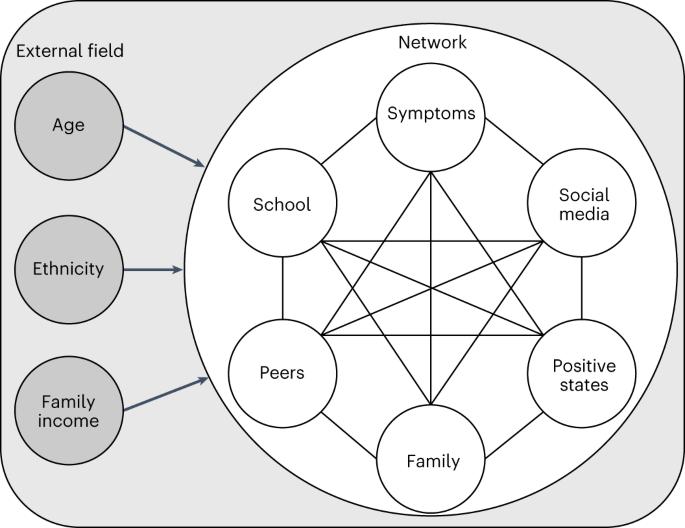Time spent on social media among the least influential factors in adolescent mental health: preliminary results from a panel network analysis
引用次数: 3
Abstract
There is growing concern about the role of social media use in the documented increase of adolescent mental health difficulties. However, the current evidence remains complex and inconclusive. While increasing research on this area of work has allowed for notable progress, the impact of social media use within the complex systems of adolescent mental health and development is yet to be examined. The current study addresses this conceptual and methodological oversight by applying a panel network analysis to explore the role of social media on key interacting systems of mental health, wellbeing and social life of 12,041 UK adolescents. Here we find that, across time, estimated time spent interacting with social media predicts concentration problems in female participants. However, of the factors included in the current network, social media use is one of the least influential factors of adolescent mental health, with others (for example, bullying, lack of family support and school work dissatisfaction) exhibiting stronger associations. Our findings provide an important exploratory first step in mapping out complex relationships between social media use and key developmental systems and highlight the need for social policy initiatives that focus on the home and school environment to foster resilience. Panayiotou et al. performed a panel network analysis to investigate the relationship between time spent on social media and mental health in a large cohort of UK adolescents.

花在社交媒体上的时间是青少年心理健康影响最小的因素之一:来自小组网络分析的初步结果
人们越来越关注社交媒体的使用在记录的青少年心理健康问题增加中所起的作用。然而,目前的证据仍然很复杂,没有定论。虽然对这一领域的研究不断增加,取得了显著进展,但在青少年心理健康和发展的复杂系统中,社交媒体使用的影响仍有待研究。本研究针对这一概念和方法上的疏忽,采用面板网络分析的方法,探讨了社交媒体对英国 12041 名青少年的心理健康、幸福和社会生活等关键互动系统的作用。我们发现,在不同时期,与社交媒体互动所花费的估计时间可预测女性参与者的注意力集中问题。然而,在当前网络所包含的因素中,社交媒体的使用是对青少年心理健康影响最小的因素之一,而其他因素(如欺凌、缺乏家庭支持和对学校工作不满意)则表现出更强的关联性。我们的研究结果为绘制社交媒体使用与关键发展系统之间的复杂关系图迈出了重要的探索性第一步,并强调了社会政策措施关注家庭和学校环境以培养复原力的必要性。Panayiotou 等人进行了一项面板网络分析,研究了英国大批青少年花在社交媒体上的时间与心理健康之间的关系。
本文章由计算机程序翻译,如有差异,请以英文原文为准。
求助全文
约1分钟内获得全文
求助全文

 求助内容:
求助内容: 应助结果提醒方式:
应助结果提醒方式:


